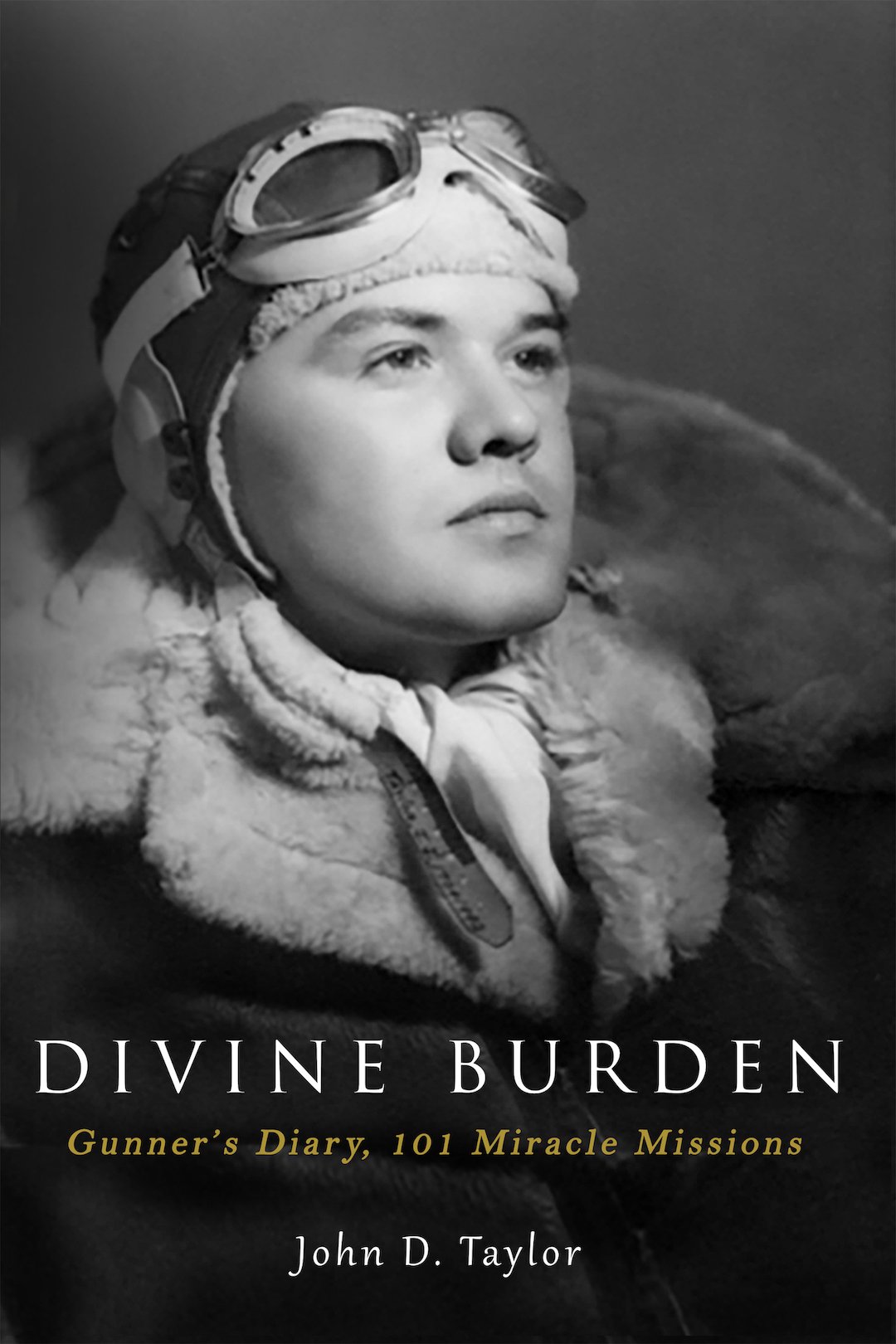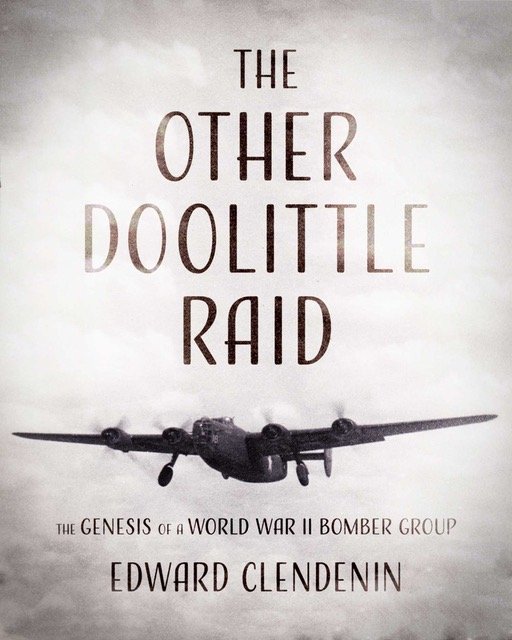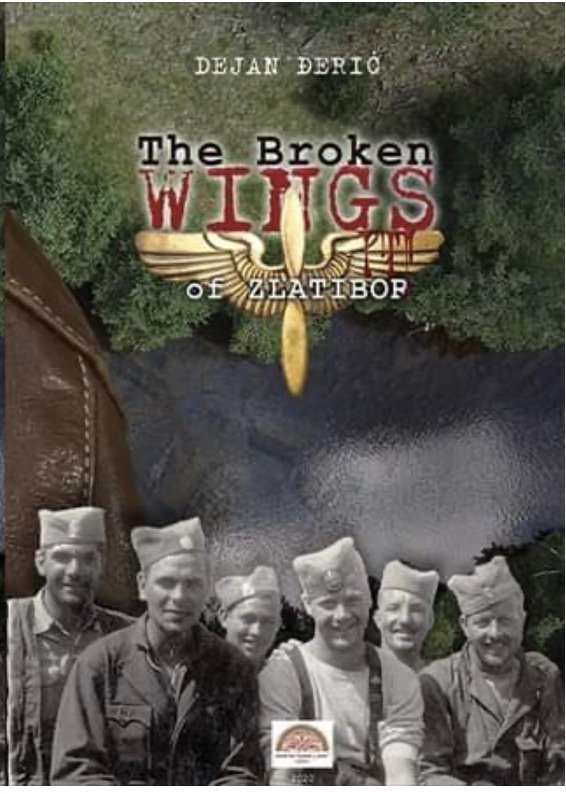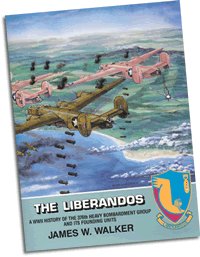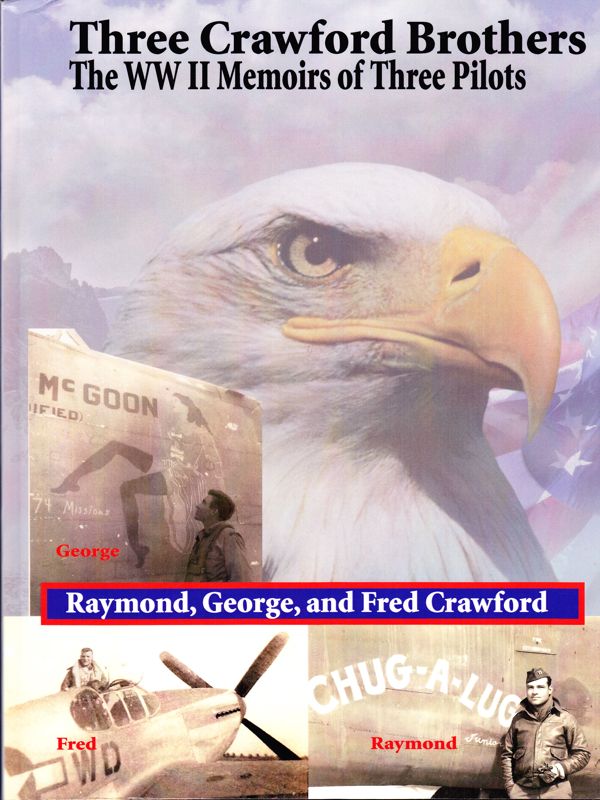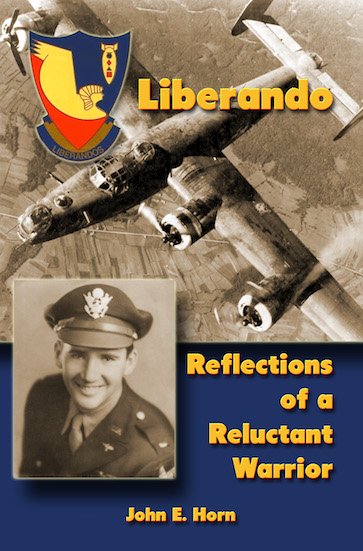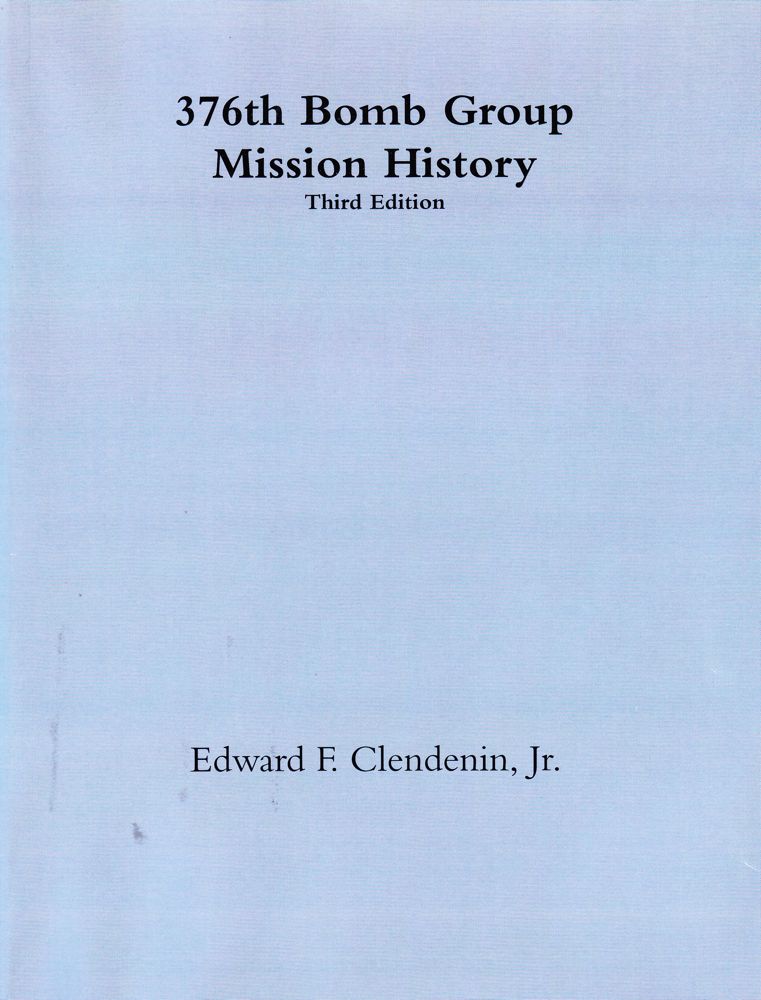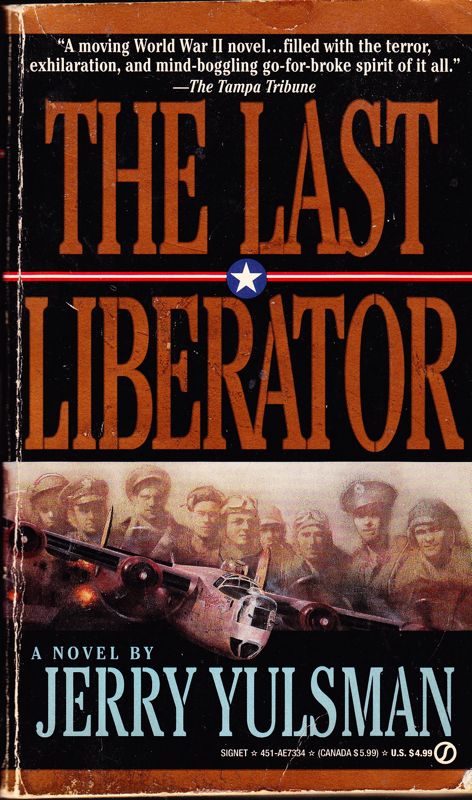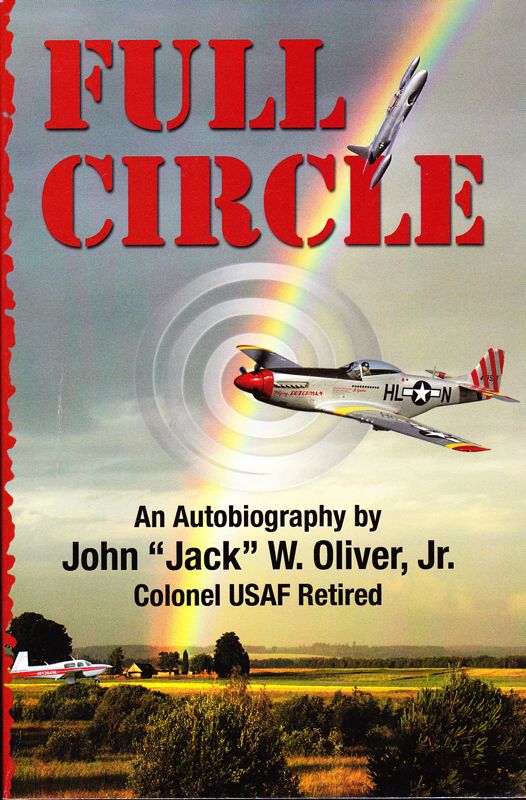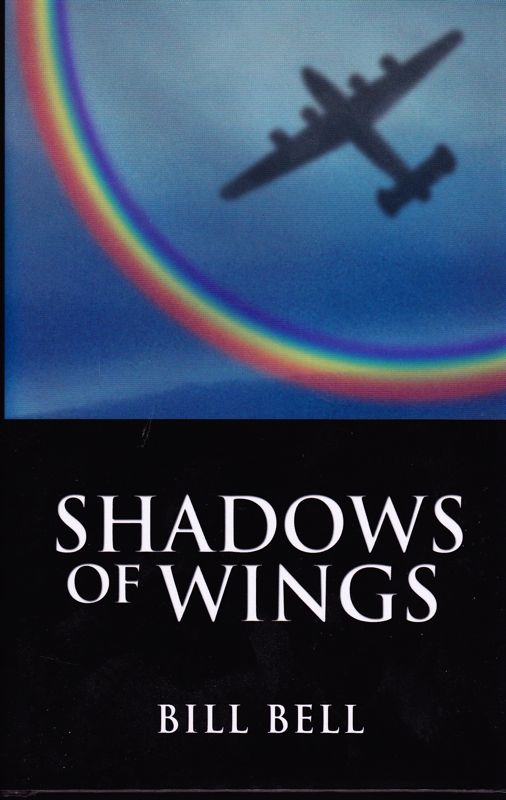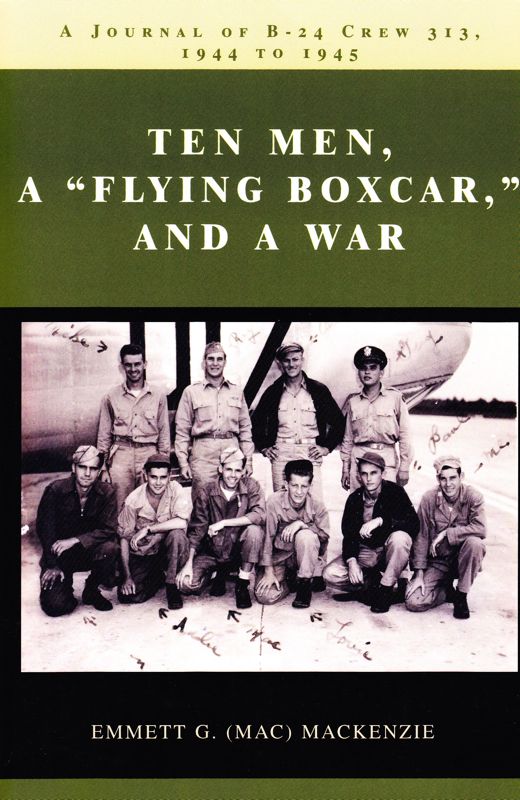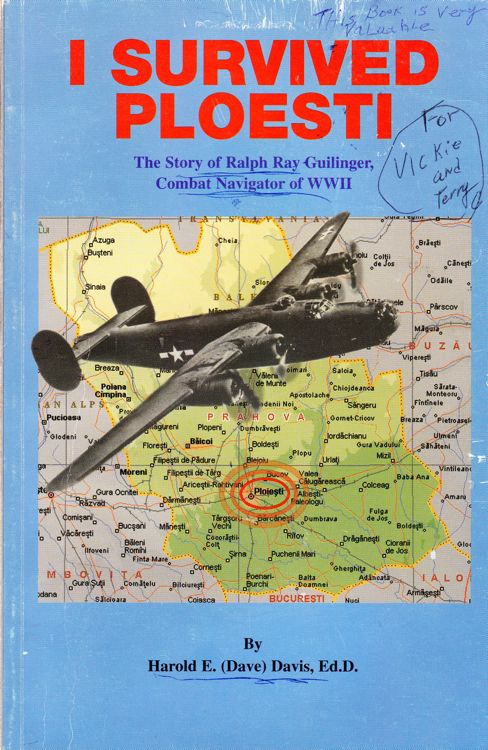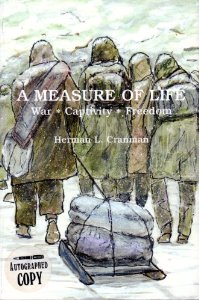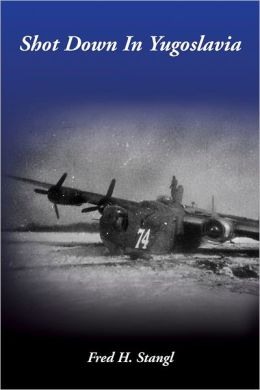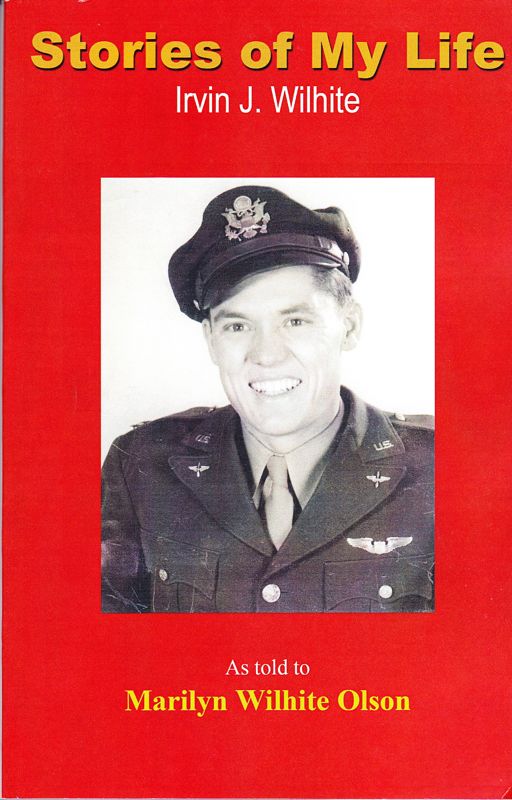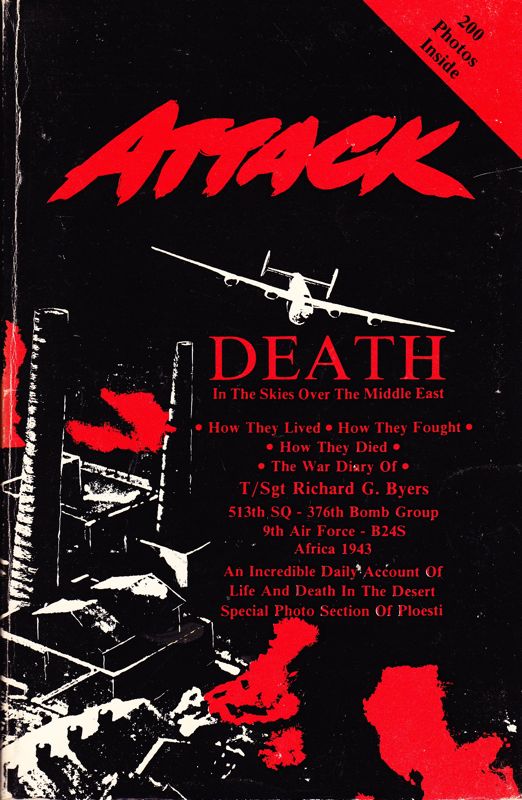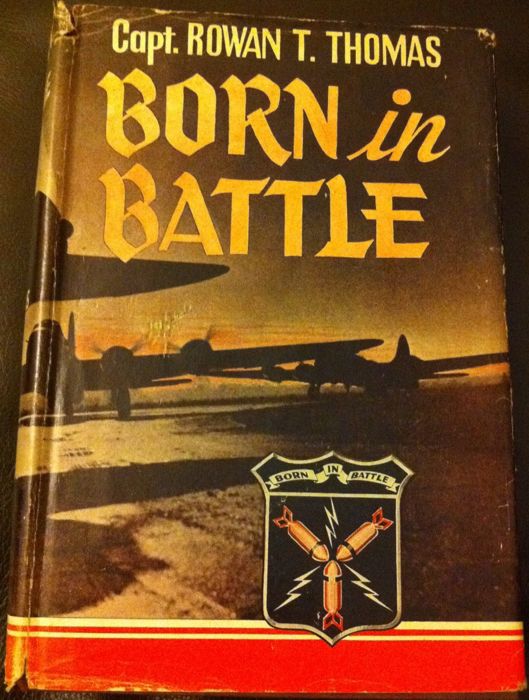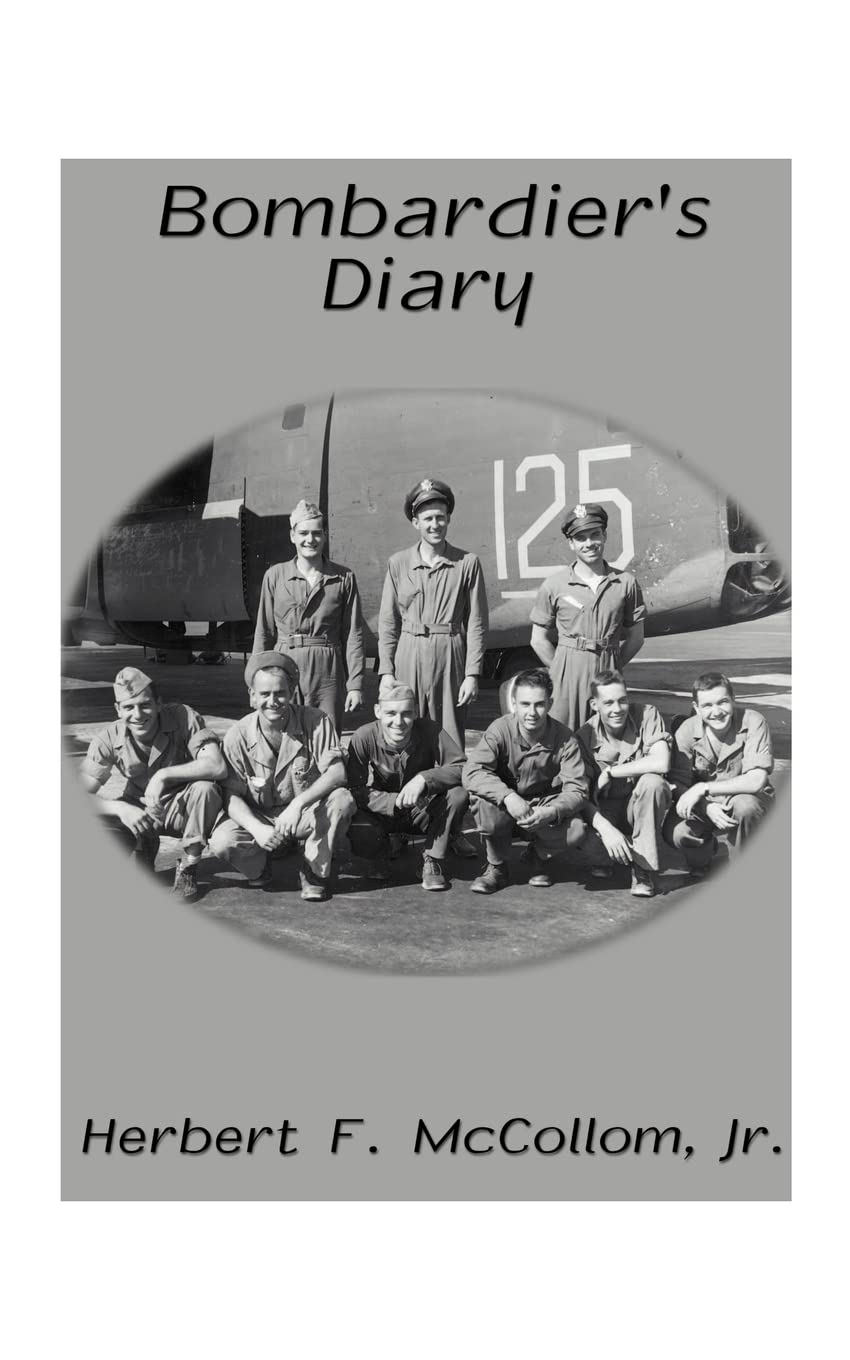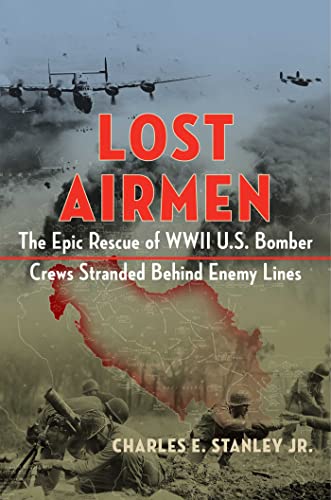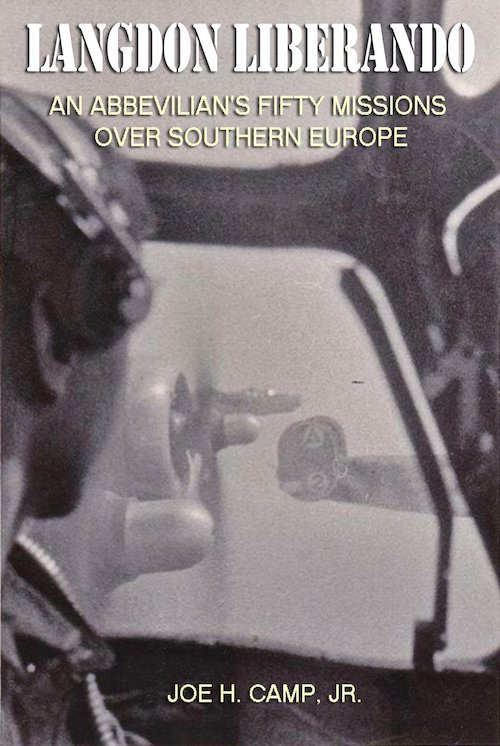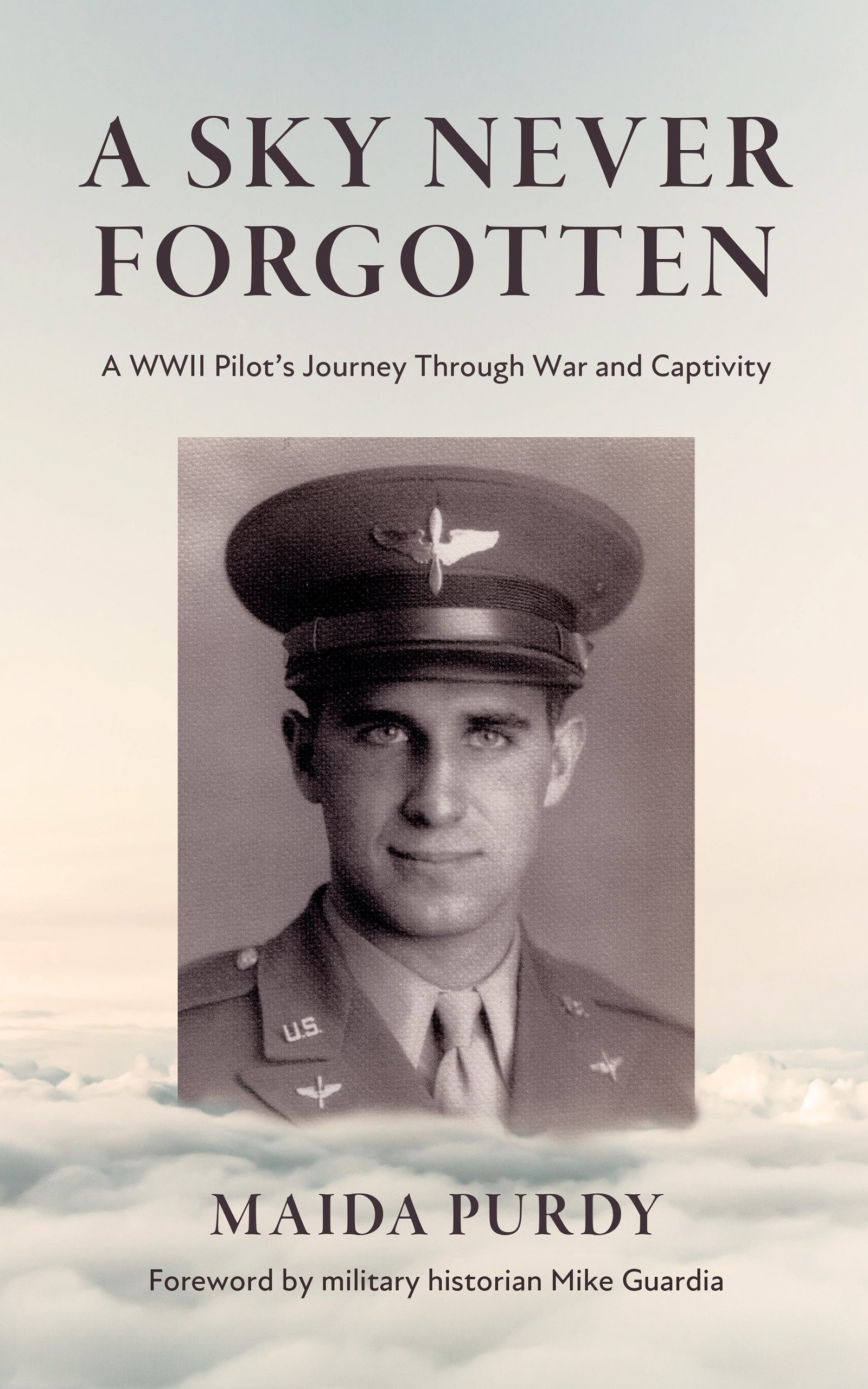Alexander Mackenzie mission February 21, 1945.
A GOOD DAY
We had beautiful weather for our trip to Vienna. We were flying north from Italy. The sun was bright, not a cloud in the sky. The snow in the Alps was whiter than white. How peaceful it was.
We approached Vienna at 25000 feet. Directly ahead, the sky was filled with puffy black clouds. It was all smoke from exploding anti-aircraft shells. As the nose gunner on that B-24, I had a good view. Those clouds contained a rainstorm of scrap iron. I had been there before and knew that well. Flying into a hunk of iron at 300 miles an hour can cause real damage. It was on that raid that the flight engineer lost the top of his head. Some of his brain, I was told, landed in the copilot's lap.
We completed the bomb run and were still flying. Almost by habit, I looked at each of the four engines. One on each side was dead. The motionless propellers looked like fat branches on a big dead tree. One engine was laying out a long stream of smoke.
The plane would fly with only two engines, but with a steady loss of altitude. We were hundreds of miles from friendly territory. Still, I was optimistic.
Looking at the ground was like looking out of the airline window. There were hills, fields, roads and towns. The difference was that there were people down there who could organize a lynching in no time.
Luck was with us. We made it into allied territory. I climbed out of the turret and picked up my parachute. There was not enough room in the turret for the parachute. I crawled under the flight deck and weaved my way through the bomb bay. I made my way to the waist area where there was more room. I did not know that during my little trip, the remaining two engines had died.
A casual look out of a window revealed trees flying by. Suddenly, it was completely dark. There was extreme pain. I could not breathe not even enough to scream. I was suffocating, drowning. I could taste the dirt as if my face were plowing the ground. I figured that I was under the plane being squashed like a roach. It seemed endless. Clearly, it was over. I just wanted a quick finish.
Then there was light. I heard a hissing noise. I was hanging upside down, some distance above the ground. A tom piece of aluminum had threaded inside the leg strap of my parachute harness.
After a while, two guys cut me down. They laid me on the ground. My heavy boots caused my feet to fall over on their sides. My legs were badly broken.
The plane started to bum. Ammunition was exploding. There was a lot of smoke. The two guys tried to move me by carrying me by the arms and legs. The pain was too much so they left me there. I knew that the plane could easily explode. I was close enough to touch it. I didn't give a damn.
After a little while, I began to think more rationally. I did not want to die having given up. I used my elbows to inch my way away from the plane.
Time passed. Lying on the ground, I was getting very cold. With all that smoke as a signal, why did help not arrive? It was starting to get dark. Then two Italian men came along with an old wooden door. They loaded me on it using it as a stretcher. They carried me to a nearby stone farmhouse. It had only one room and a big fire. Gosh, that felt good.
Finally, the army ambulance arrived. We called it the meat wagon. They tied my feet together to keep them from falling over. They took me and some others to a field hospital.
The field hospital was a busy place. I had no sooner arrived, still on the stretcher, when the nurse started cutting off all my clothes. No big deal. It was army property. The final item, she started cutting my socks. I tried to sit up. With indignation I shouted, "Hey, those socks are mine!" That did not slow her down a bit.
Before I knew it, I was on the operating table. Next thing it was morning. I was in a hospital bed. A hole had been drilled crosswise through both heels. Metal pins were inserted so that a traction device could be attached. The purpose was to stretch my legs.
The traction was painful. The next two weeks seemed endless. Then I was moved to a general hospital in Bari, Italy. I had lost a lot of weight, developed some kind of infection, and was running a high temperature. For the infection, I was given a shot of penicillin every four hours around the clock. We joked saying, "Wake up! It's time for your sleeping pill." To improve my appetite, I was given a good shot of straight whiskey every evening before supper. It was not clear if that did any good but I certainly did not complain.
The medics did a good job. With a metal plate and a handful of screws, they got the bones back together. I still have that hardware. Unfortunately, it is nonmagnetic. It would have been fun to show the kids that I could hold up my sock with a magnet.
After some lesser adventures, there was a move to Rome. Later it was Algiers and Casablanca. The last hop was to Miami on a large transport plane devoted to stretcher cases. There was a stop in the Azores and then on to Bermuda, where there was a delay.
All of the stretchers were taken off the plane. They were lined up on the concrete not far from the aircraft. The stretcher was comfortable. There was a gentle Bermuda breeze. The sun felt good. There were some pretty girls flitting around dealing out box lunches. I was hungry and wolfed mine down. Shortly, one of the girls asked if I needed anything else. I said, "Yeah, how about a cigar. Before long she was back with the cigar and lit it for me.
Oh, the King of Siam should have had it so good. It was a good day.
I spent a full year in the hospital after which I was discharged from the army. Some of the other crewmembers had the same type of experience. Some had a shorter hospital stay and returned to flying. The engineer, a replacement for that one mission was lost.
After the war, we all corresponded and made a few visits with each other. I still communicate and visit with Alex Koliopoulos, our radioman. As far as we can determine, there are only three or four of us left.
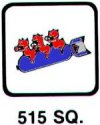
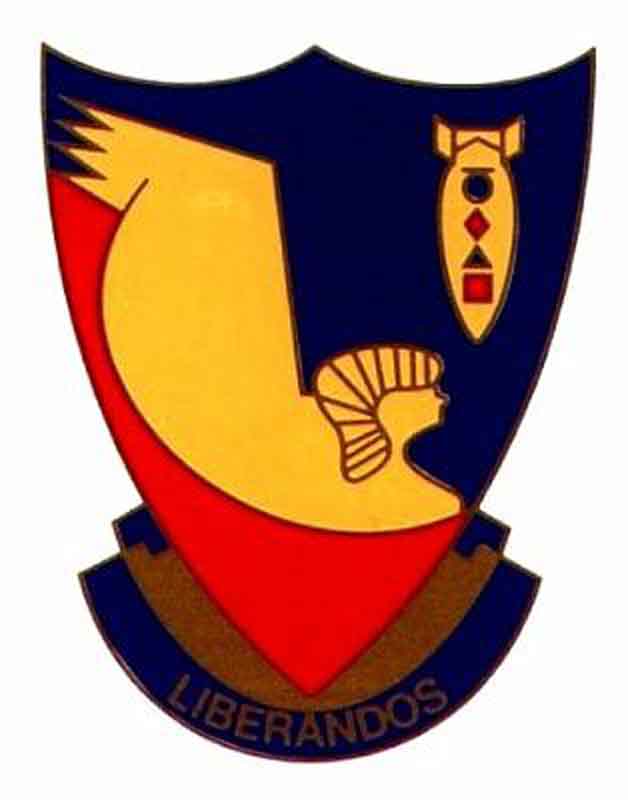
The website 376bg.org is NOT our site nor is it our endowment fund.
At the 2017 reunion, the board approved the donation of our archives to the Briscoe Center for American History, located on the University of Texas - Austin campus.
Also, the board approved a $5,000 donation to add to Ed Clendenin's $20,000 donation in the memory of his father. Together, these funds begin an endowment for the preservation of the 376 archives.
Donate directly to the 376 Endowment
To read about other endowment donation options, click here.
Reunion
NOTE change in the schedule !!
DATES: Sep 25-28, 2025
CITY:Rapid City, SD
HOTEL: Best Western Ramkota Conference Hotel; 2111 North LaCrosse St., Rapid City, SD 57702; 605-343-8500
Click here to read about the reunion details.
